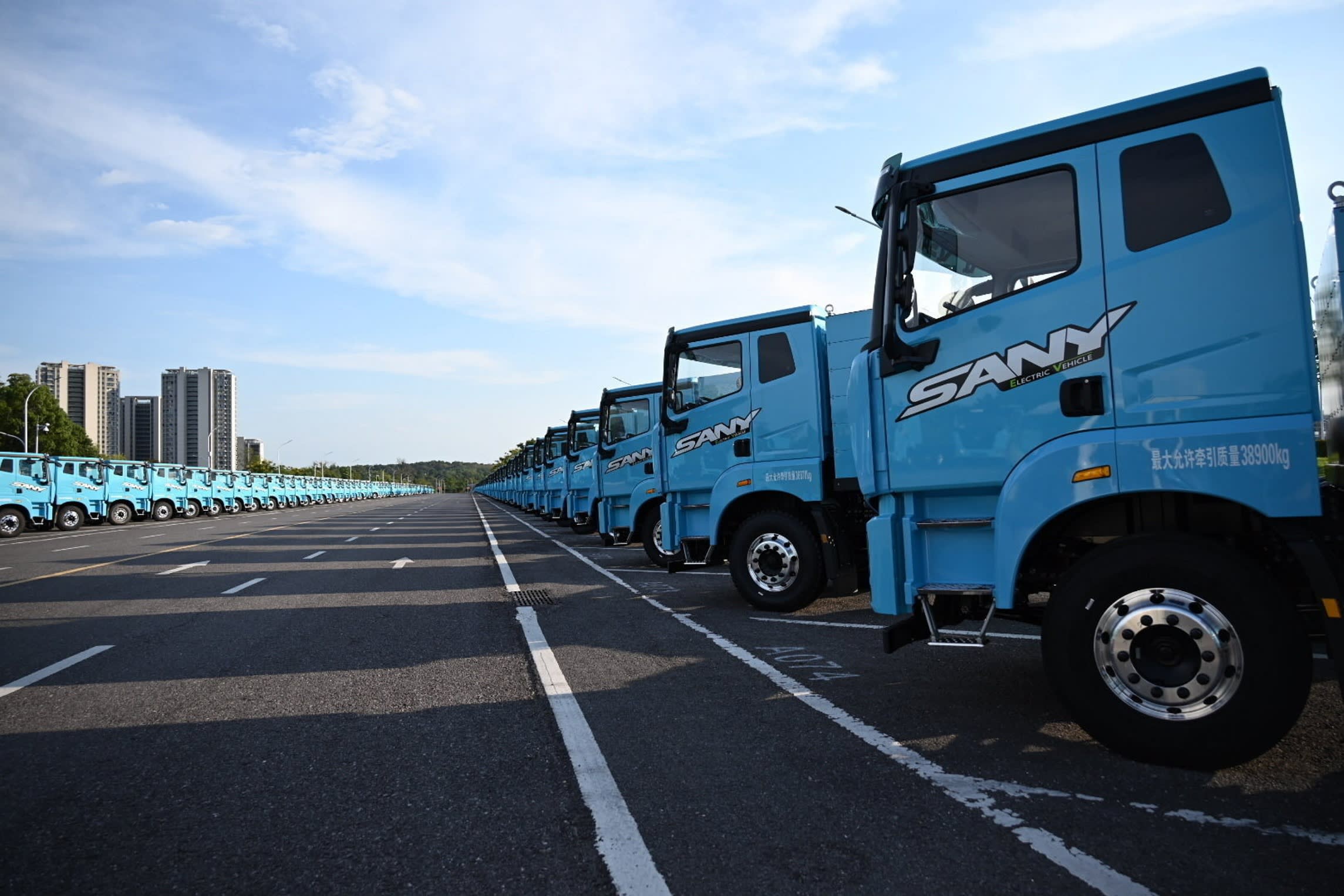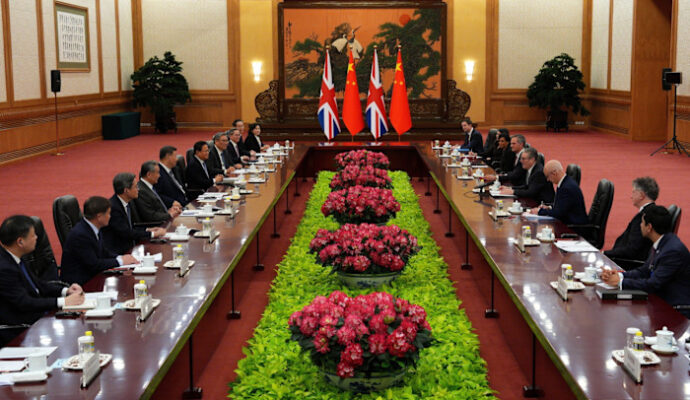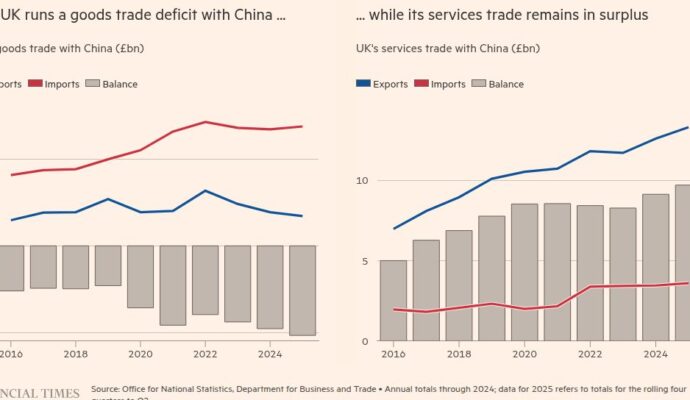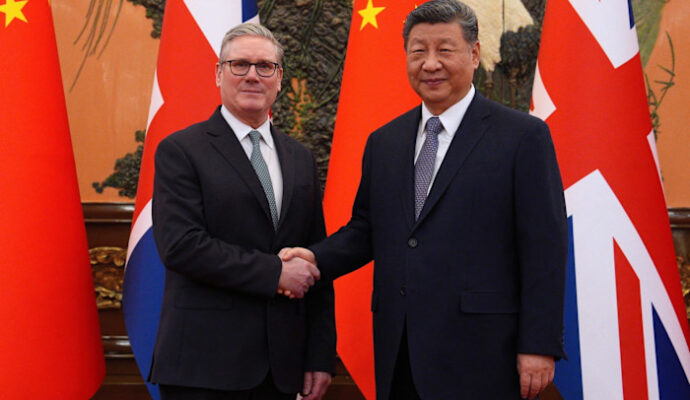Stay informed with free updates
Simply sign up to the Electric vehicles myFT Digest — delivered directly to your inbox.
China’s biggest electric-truck maker says it is targeting growth overseas, in a fresh challenge to the global auto industry as Chinese production of high-tech, low-cost battery-powered heavy goods vehicles booms.
Liang Linhe, who leads the electric trucking division of Sany Group, a construction and mining equipment behemoth, expects around half the group’s sales will come from overseas markets by 2030, up from about 10 per cent this year.
“We are already seeing the rapid development of the overseas market,” he told the Financial Times in an interview, adding that the “biggest challenge” was that many countries’ electricity infrastructure lagged that of China.
The Chinese group launched its electric truck business in 2021 and has won a market share of around 16 per cent domestically. The group expects annual sales of about 30,000 electric trucks for 2025, mostly in China. It has opened an electric truck factory in South Africa this year, is scouting for land in Brazil for a second overseas operation and has begun selling its vehicles in Europe.

The electrification of China’s trucking fleet and Sany’s overseas ambitions threaten the future of companies making and operating heavy goods vehicles that use diesel or LNG fuel, in an industry already beset with overcapacity.
Diesel trucks accounted for around 51 per cent of sales in China in the first eight months of the year, compared with 75 per cent in the same period in 2023, according to Commercial Vehicle World (CV World), a Beijing-based data provider. By contrast, electric trucks’ penetration rate has soared to around 24 per cent, from as low as 4 per cent two years earlier.
China produced 1.1mn medium- and heavy-commercial vehicles in 2023, less than a quarter of its truckmaking factory capacity, according to S&P Global Mobility data.
Sany was co-founded by Liang’s uncle, billionaire Liang Wengen, once China’s richest man. Headquartered in Changsha, central China, the company is the country’s biggest heavy-machinery manufacturer and rivals US group Caterpillar and Japan’s Komatsu with operations in 140 countries. As part of Sany’s European entry, it is working with Putzmeister, the German high-tech concrete pump company that Sany and Citic bought for €525mn in 2012.
Liang expects to charge higher prices and have a fatter profit margin from overseas sales — a strategy that mirrors China’s leading electric vehicle groups, which are wary of political blowback from flooding foreign markets with cheap goods. “Otherwise, someone might say we are dumping, leading to some sanctions,” he said.
Sany has invested around Rmb22bn ($3.1bn) developing its electric truck business. The Changsha factory has capacity to produce around 150,000 trucks a year in its first phase, with plans to double capacity to 300,000 over the coming five years.
Christopher Doleman, Institute for Energy Economics and Financial Analysis, said China’s electric truckmakers appear set to follow a “similar path” to China’s EV groups. Amid intense domestic competition, they have pivoted to a strategy of export-driven growth to use their manufacturing capacity and maintain profitability.
“That could be to any country that has set out to reduce their dependence on oil and diesel imports,” he said.
Steep declines in battery costs and improvements in range have been crucial to China’s electric trucking boom. Equally, state subsidies for fleet owners to trade in diesel trucks and local officials allocating special travel lanes for battery-powered vehicles have helped Chinese companies achieve scale.
Industry executives predict electric trucks will have a 50 per cent market share within three years in China.
However, Cassie Liu, a Beijing-based heavy truck research analyst with S&P Global Mobility, said the cost of switching to electric is still prohibitive for many individual owner-operators who make up the majority of the trucking fleet. Diesel trucks, according to her team’s forecasts, will still dominate the sector through to at least 2032.
Liang, however, expected many operators to be subsumed into bigger fleets as the electric transition gathers pace. Sany, he added, invests about 8 per cent of its revenues into research and development for Changsha’s battery production, solar-powered battery swapping and charging networks across China, as well as driverless technology.
“This is our core technology,” he said, adding, “Many partners from overseas markets are very interested, including from the United States.”
Additional contributions by Wang Xueqiao and Gloria Li


